Kefir: calories and nutritional value
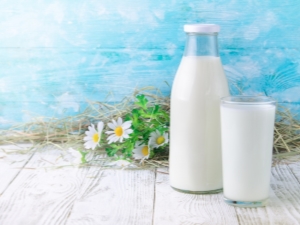
Kefir is a fermented milk product, one of the most popular drinks with proper and dietary nutrition. The composition of the drink includes: fermented cow's milk, "kefir" fungi.
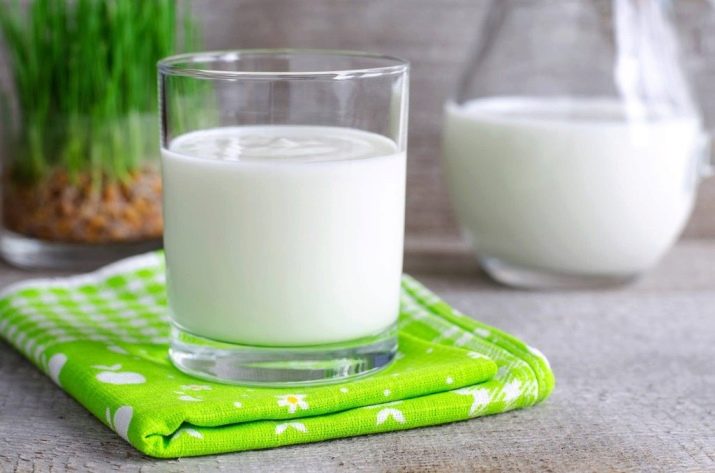
Nutritional and energy value
Kefir is a source of useful trace elements and vitamins necessary for the human body. It is rich in calcium, phosphorus, magnesium, minerals and other substances. The chemical composition is similar to milk, but populated with beneficial fungi and vitamins. The calorie content of a product depends on the percentage of fat it contains.
Depending on the fat content, kefir is divided into types:
- skimmed;
- 1 percent in terms of fat content;
- 2,5%;
- 3,2%.
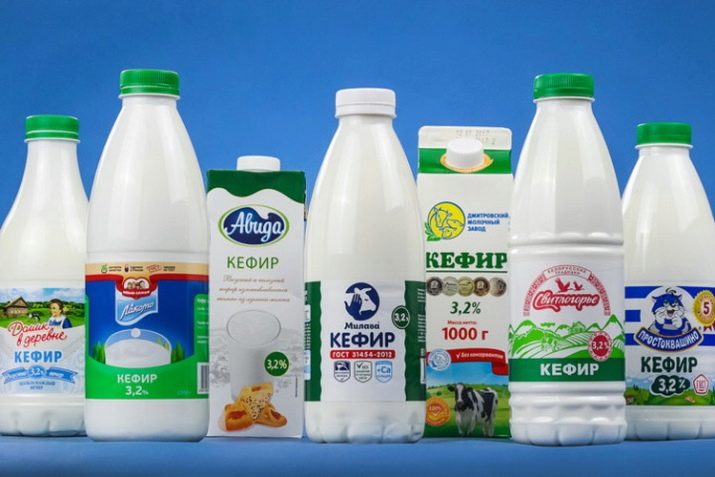
Fat-free kefir is low-calorie, it contains 30 kcal per 100 g. This type will be useful for losing weight people. Regardless of the absence of fat in the composition, the product retains its nutrients. The next in calorie content is a 1% drink (in 100 g - 37 kcal). Kefir with a fat content of 1% is suitable for people who adhere to proper nutrition and follow a diet. A small proportion of fat in the composition of the drink will not harm, on the contrary, in relation to calcium and phosphorus, it strengthens the body and human bone tissues.
One glass of this drink has a huge content of vitamins and bifidobacteria. Easy digestibility, so you can use it with any diet, as well as with diseases of the gastrointestinal tract. It can be used for food by children under 1 year old, but due to the presence of a small amount of ethyl alcohol in its composition, this must be done very carefully.You can not abuse the product in cases of diseases of the duodenum 12.
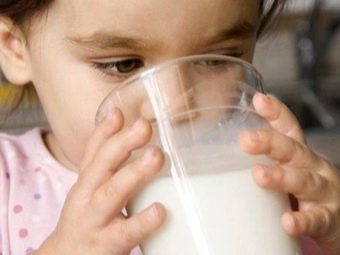
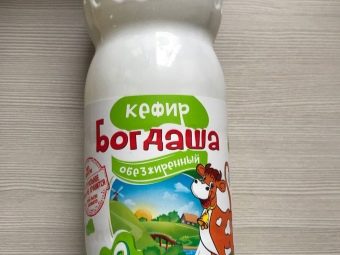
The product is considered universal, because it is used in many spectrums of everyday life:
- for cooking and baking, marinade for main dishes;
- to maintain beauty and health (facial and hair procedures, folk remedy for sunburn);
- for sports use (diet based on it).
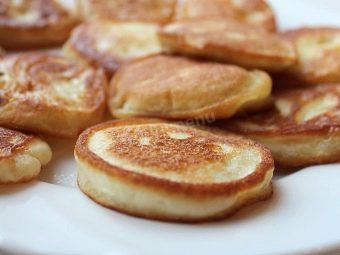

Dairy products carry energy value. Having drunk a glass of drink in the morning, a person is guaranteed to receive a charge of vivacity and energy for the whole day.
When buying a product, it is important to pay attention to the production time, storage conditions, composition, compliance with GOST requirements. A quality drink does not have a pungent odor and lumps. Opened product should be stored in the refrigerator for no more than 5 days.
Composition of 1% fermented milk drink:
- whole milk and normalized by the amount of fat;
- “kefir” fungi, which, with sourdough, create and supplement milk with taste and useful substances;
- bifidobacteria, which have a beneficial effect on the work of the digestive tract.
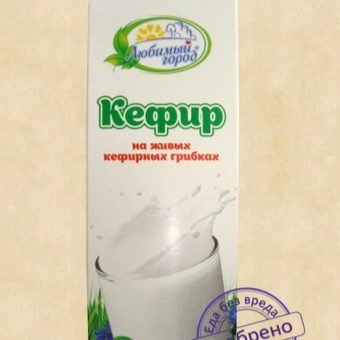
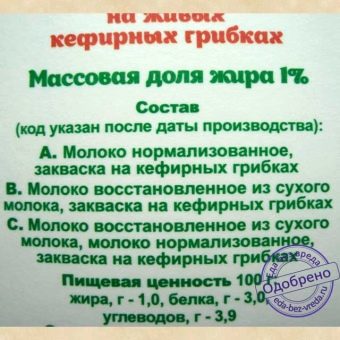
Indicators of KBJU per 100 grams of a 1% product: calorie content - 40 kcal, proteins - 2.8%, fats - 1%, carbohydrates - 4%. Such a product is necessary for the body, sourdough has a beneficial effect on the functioning of the intestines and helps to eliminate toxins and toxins. Due to the functions of loosening and excretion, it is recommended for fasting days. The composition of the fat-free product is saturated with vitamins of groups A, B, E and D, a large amount of calcium and iron, choline and chlorine. The content of ethyl alcohol fluctuates around 0.07%.
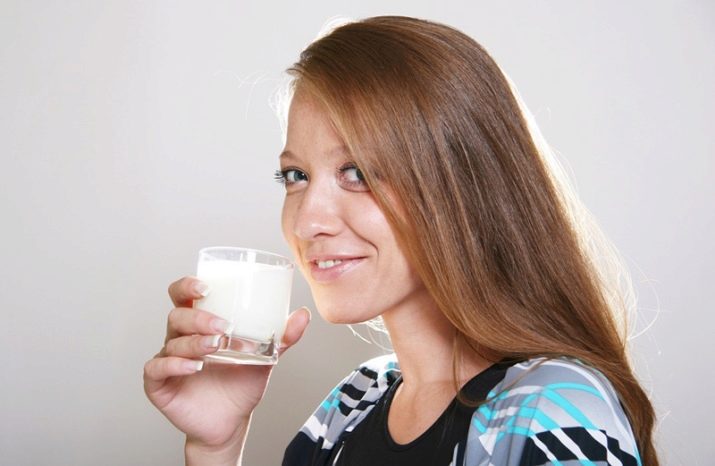
Calculation of BJU per 100 g:
- proteins - 3%;
- fats - on average from 0 to 0.1% (depending on the manufacturer);
- carbohydrates - 3.8%.
The amount of fat in the above products varies on average from 0 to 1%. The fat values in kefir indicate what level of milk fat is contained in it. Experts recommend choosing 1-2.5% fat. The presence of fat helps to improve the condition of the skin, hair, metabolism. A fat-free product should be consumed with food that contains fats. The human body needs fats to function properly and avoid a calorie deficit. Fat-free kefir is not recommended to drink daily.
Homemade kefir is more nutritious and healthier than industrial. 100 g of home-cooked kefir contains 63.3 kcal, proteins - 3.2%, fats - 3.5%, carbohydrates - 4.8%.
Note to kefir lovers: the lower the percentage of fat content of the product, the more sour it tastes. Manufacturers add sweeteners to eliminate the sour taste.
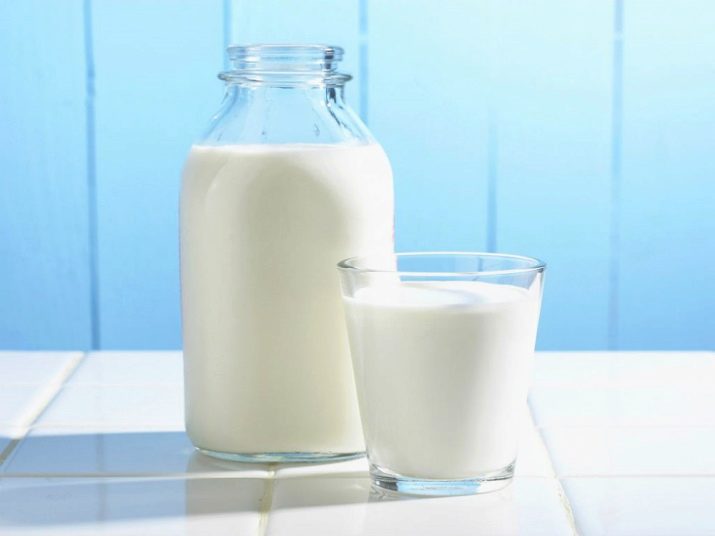
Does it contain lactose?
Lactose is a milk sugar found in dairy products and milk. The level of the substance in all products is different - from about 2 to 8%. In kefir, milk sugar has a minimum dose; in fat-free kefir, it is completely absent.
People with lactose intolerance are advised to include fermented milk products in their diet, and kefir is ideal. This fact indicates that there is more milk sugar in natural milk than in kefir.
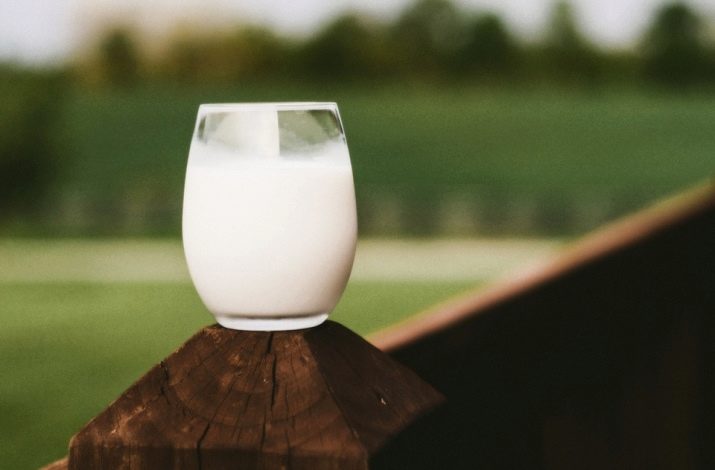
Density
When buying kefir, a number of factors should be taken into account in order to maximize the choice of a quality product. There are two types of product: with a dense and liquid consistency. The difference between them is in the mode of production. A dense product is prepared in bottles, a liquid product in tanks. The density of kefir is from 1031 to 1033 g/liter.This means that 1 liter of kefir has a weight ranging from 1031 to 1033 g. The greater the weight, the higher the density of the same volume.
Calorie content of popular dishes with kefir
Kefir is widely used in cooking, Below are the calculations of the calorie content of dishes with kefir.
- Refrigerator. 100 grams of the dish contains - 15.9 kcal, proteins - 1.2 g, fats - 0.3 g, carbohydrates - 2.1 g. Fresh vegetables include: cucumbers, beets, greens; eggs, kefir, salt - to taste.
- Beetroot. The calorie content of the dish is higher than the previous dish - 186 kcal, proteins - 11.1 g, fats - 5.2 g, carbohydrates - 23.9 g. Prepare beetroot from the following ingredients: beets, cucumber, herbs, kefir, salt; sour cream - when serving.
- Useful breakfast. A common breakfast option is muesli with kefir. 100 grams contains - 167 kcal, proteins - 6.0 g, fats - 7.0 g, carbohydrates - 27.0 g. A quick breakfast is prepared from kefir, fresh fruits, Hercules cereal, and nuts and dried fruits - according to desire. Delicious, fast and healthy.
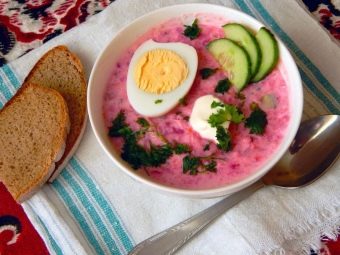
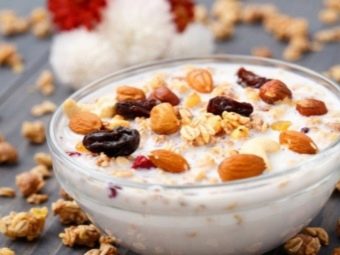
10 facts about kefir, see the following video.

















